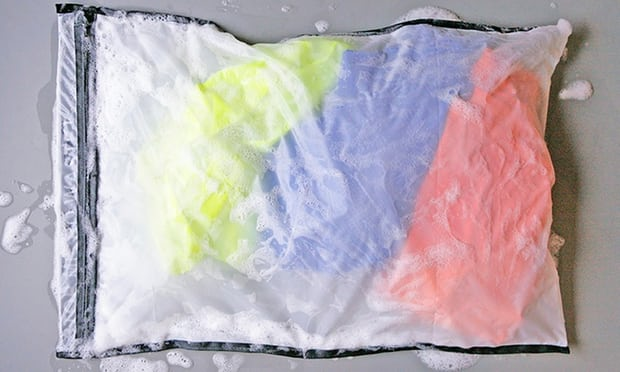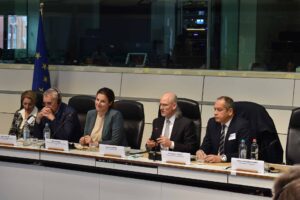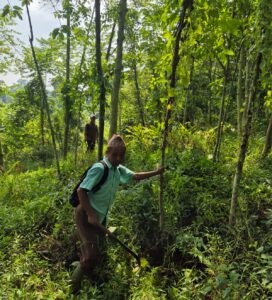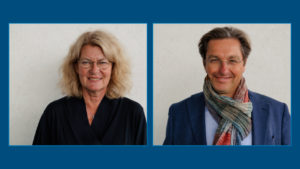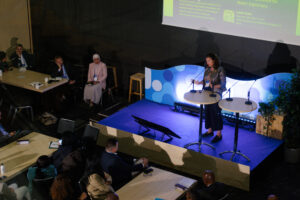Catch the Plastic! – Guest Lecture co-organised with STWI
SIWI Swedish Water House hosted an inspirational guest lecture by Alexander Nolte from GuppyFriend and Stop Microwaste now! on behalf of Sweden Textile Water Initiative (STWI).
Alexander Nolte, a water (actually surfing) enthusiast that together with other outdoor lifestyle enthusiasts told us about how we all need to be more aware of the growing issue of microplastic waste in our oceans. The problem is receiving growing attention lately, since there is more understanding of how the microplastics, once in water bodies, attracts both bacteria and pollutions finding its way up the food web, through phytoplankton and into seafood that we like to eat. With growing awareness and increased political attention, everyone is searching for the magic bullet. But as we know, for diffuse problems which are caused by human behaviour and consumer preference, turning the ship around will take time and dedicated effort. Meanwhile, Stop! Microwaste now – a German based NGO – is dedicated to awareness raising activities such as education for youth, and to stop sources of plastics before it turns to microplastics for example by promoting substitutes.
GuppyFriend is the washing bag that you as a consumer can buy and use – one downstream solution – while waiting for (or contributing to) the systems change. The bag, Alexander explains, protects the fibres in the garment and reducing amount of fibre waste, and actually prolongs their longevity. The patented solution is then collecting the microplastics that do shed in the seams where you can easily remove the fuzz and put it in household waste where it will be incinerated, which is the viable option for preventing plastics from entering nature.
Since we started a working group on microplastics in relation to textiles among STWI brands a couple of years ago, a lot of dedicated action has happened and a lot of research is going on to understand material choices and its effects on ecosystem pollution before, during and after garments’ lifecycle. The industry has a lot to keep working on in this regard, but we consumers will also have to be attentive to washing habits, take care of clothes and make an effort to stay informed and demand solutions. After all – we’re in it together.
